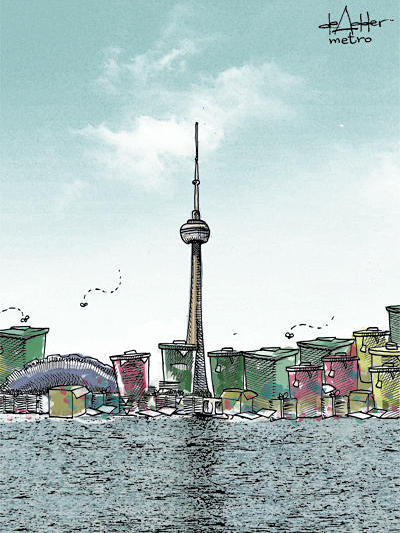 One of the most publicized sticking points in the ongoing Toronto civic strike is the union leadership’s belief that their members have a “right” to bank unused sick days and cash them in when they retire. This has raised a notable amount of public ire (polls out today suggest 76% disapproval ratings for striking CUPE locals 416 and 79) for obvious reasons that I probably don’t need to detail.
One of the most publicized sticking points in the ongoing Toronto civic strike is the union leadership’s belief that their members have a “right” to bank unused sick days and cash them in when they retire. This has raised a notable amount of public ire (polls out today suggest 76% disapproval ratings for striking CUPE locals 416 and 79) for obvious reasons that I probably don’t need to detail.
There’s another angle to this, however, that I think is less discussed. The main purpose of providing paid sick days is to ensure that employees are not financially penalized for getting sick. It wouldn’t be fair for an employer to say “you were sick for 7 days this year, therefore we’re docking 7-days-worth of your pay.” Heck, if an employer did that, organized labour would rightly fight against it, wouldn’t they? They might even go on strike!
Except that in Toronto, CUPE has done the exact opposite. They’ve gone on strike to ensure, in part, that if someone is sick for 7 days, they’ll get paid for 7-days less work than someone who doesn’t get sick. They’ve officially taken the position that people who don’t get sick deserve to be financially rewarded for their health, at the expense of people who need—through no fault of their own—to use their sick days.
For someone who believes in economic Darwinism, in free-market-everyone-for-themselves capitalism, maybe this makes sense. But for CUPE? It suggests that they’ve become ideologically confused…that they’ve forgotten their raison d’être.
The current union leadership is doing a disservice not only to their members, but to the reputation of collective bargaining itself. The path we’re on does not end well for organized labour; a course correction would be wise.
(And no, I’m not a fan of how the city’s handling the situation—or, rather, not handling it—either. And according to that same poll, neither is the rest of the city. We need a leader, David, not a scolding parent.)